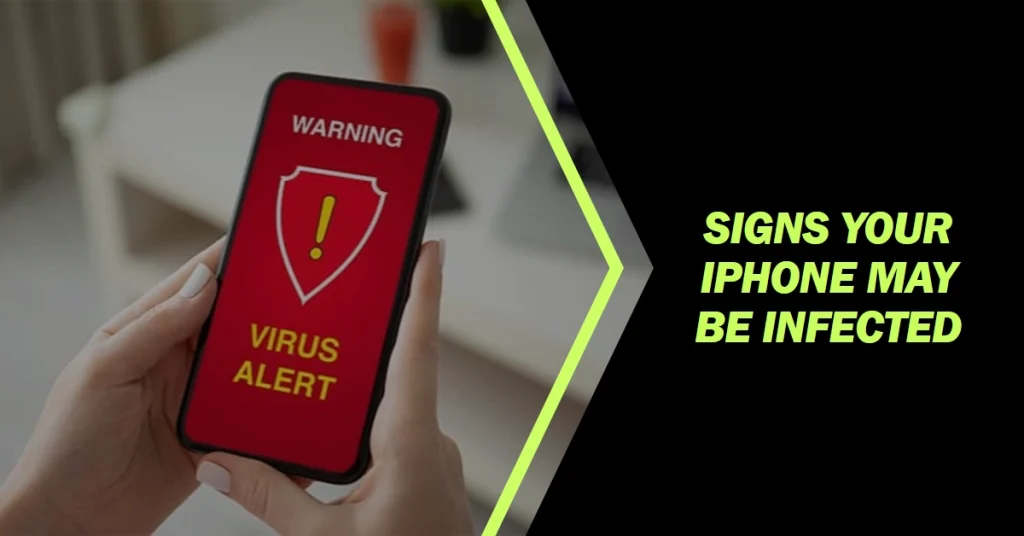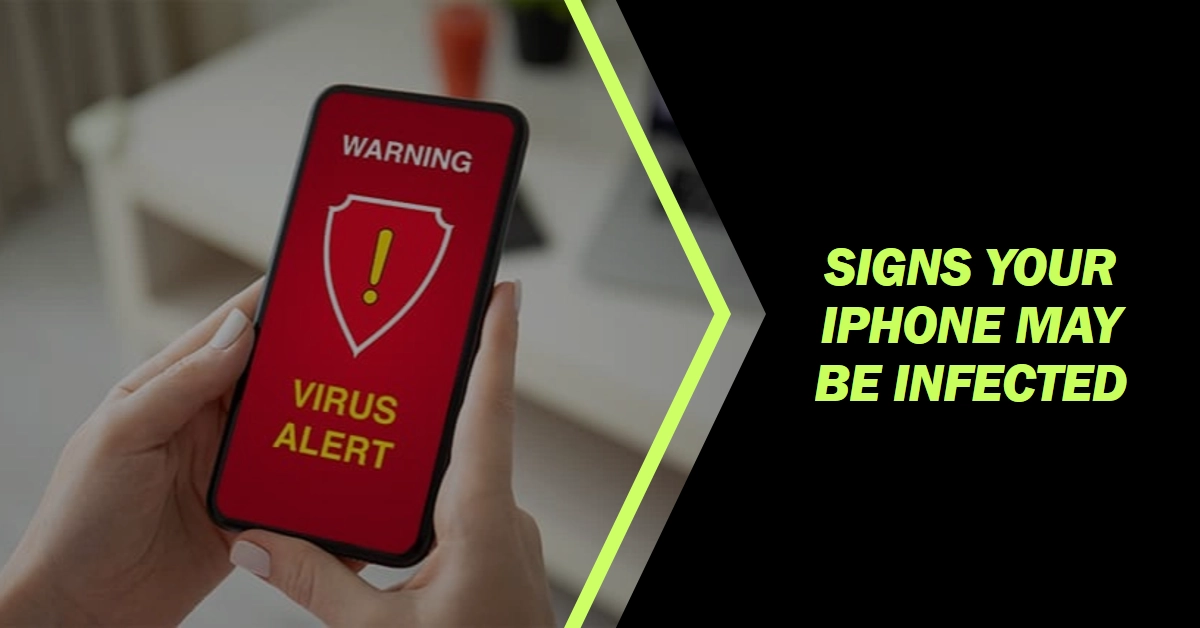Your iPhone, your trusty digital companion, holds your life in its sleek screen: photos, messages, memories, and even financial details. But what if this trusted friend becomes compromised? Viruses and malware, though rare on iPhones, can still pose a threat, lurking in the shadows and stealing your data or disrupting your phone’s performance.
So, how do you know if your iPhone has become a victim? This comprehensive guide will unveil the common signs of a virus or malware infection, guiding you towards taking back control of your digital haven.

Common Signs of iPhone Malware
1. Performance Problems: Is your iPhone suddenly running slower than a snail in molasses? Apps crashing, lagging, and taking forever to load? This could be a symptom of malware hogging resources and draining your phone’s power.
2. Unexplained Pop-Ups and Ads: Those annoying ads that used to only plague websites are now popping up on your phone, even when you’re not browsing? This is a classic sign of adware, a type of malware that bombards you with unwanted advertisements.
3. Mysterious Apps and Profiles: Did apps appear on your phone that you never downloaded? Or did strange profiles mysteriously install themselves? This could be malware masquerading as legitimate apps, siphoning your data or sending spam.
4. Battery Drain: Your iPhone used to last all day, but now it’s struggling to make it past lunch? Malware can be power-hungry, constantly running in the background and sapping your battery life.
5. Unfamiliar Data Usage: Did your data usage skyrocket overnight, even though you haven’t been streaming or downloading anything unusual? This could be malware sending your personal information or spamming your contacts.
More Advanced Symptoms to Watch Out For
1. Unusual Activity: Are your contacts receiving messages you never sent? Does your phone make calls you don’t remember? This could be malware using your phone to spread itself or steal information.
2. Overheating: If your iPhone is getting uncomfortably hot even when you’re not using it, this could be a sign of malware running intensive processes in the background.
3. Strange Notifications: Are you getting notifications from unknown apps or services you don’t use? This could be malware trying to lure you into clicking on malicious links.
4. Financial Shenanigans: Are unauthorized charges appearing on your credit card or bank statement? This could be malware stealing your financial information.
What to Do if You Suspect Malware
1. Keep Calm and Don’t Panic: The first step is to stay calm and avoid using your phone for anything sensitive, like banking or online shopping.
2. Update Your iPhone: Make sure your iPhone is running the latest version of iOS, as it often includes security patches to combat known malware threats.
3. Scan for Malware: Download and run a reputable mobile security app to scan your phone for malware.
4. Remove Suspicious Apps: If you find any suspicious apps, uninstall them immediately. Do not open them, as this could activate the malware.
5. Change Your Passwords: Change your passwords for any accounts you used on your infected iPhone, especially email, banking, and social media.
6. Consider a Factory Reset: If the problem persists, you may need to perform a factory reset. This will erase everything from your phone, so be sure to back up your data first.
Protecting Your iPhone from Future Threats
1. Stick to the App Store: Only download apps from the official Apple App Store, as they are reviewed for security. Avoid downloading apps from third-party sources.
2. Be Wary of Links: Don’t click on suspicious links in emails, texts, or websites. These could be phishing attempts to steal your information.
3. Keep Your Software Up-to-Date: Regularly update your iPhone and apps to the latest versions to benefit from security patches.
4. Use a Mobile Security App: Install a reputable mobile security app to provide additional protection against malware and other threats.
5. Be Security Conscious: Be aware of the risks associated with downloading content and using public Wi-Fi.
Remember, your iPhone is a powerful tool, and like any tool, it needs to be used responsibly and protected. By recognizing the signs of malware and taking preventative measures, you can keep your digital life safe and sound. Enjoy the peace of mind knowing your iPhone is a fortress, not a target for malicious threats.
